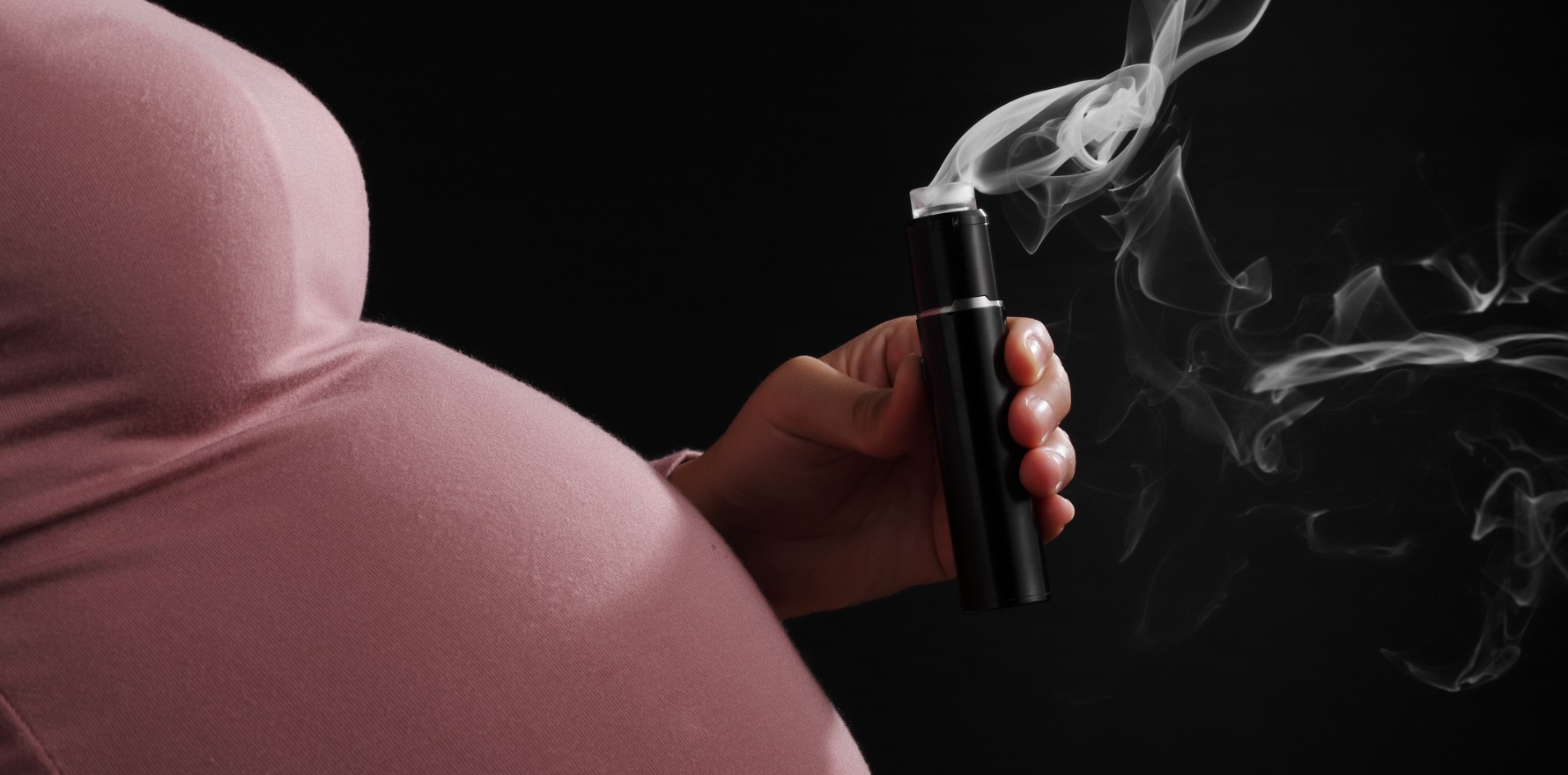It’s the chemicals in cigarettes – not the nicotine – that’s to blame for smoking-related harms, researchers say.
Using nicotine replacement therapies including e-cigarettes while pregnant is the far safer alternative to continuing to smoke, new research confirms.
Smoking has long been associated with adverse outcomes in pregnancy, although researchers have argued nicotine is not responsible for these effects. Nicotine replacement therapies – patches, sprays and gum – are common approaches to help smokers quit.
In addition, e-cigarettes are gaining popularity as an aid to stop smoking. However, little is known about the safety of e-cigarettes as an alternative to smoking in pregnancy.
A secondary analysis of a UK-based randomised clinical trial, published in Addiction, reports regular e-cigarette and nicotine patch use by pregnant smokers is not linked with adverse outcomes such as miscarriage or congenital abnormalities.
“Nicotine containing aids can help pregnant women to stop smoking, but some clinicians are reticent about providing [patches] or e-cigarettes in pregnancy. This study provides further, reassuring evidence that tobacco smoke chemicals rather than nicotine are responsible for smoking-related harms, so using nicotine containing aids to quit is vastly preferable to continuing to smoke when pregnant,” said Professor Tim Coleman, whose research group led participant recruitment for the trial, in a statement.
Researchers reanalysed data from the pregnancy trial of e-cigarettes and patches (PREP) study, published in Nature Medicine in 2022, which suggested e-cigarettes were a better quitting aid in pregnant smokers compared with nicotine patches.
In the new study, researchers compared pregnancy-related outcomes for 1100 smokers based on how regularly they used (or didn’t use) e-cigarettes or nicotine patches during their pregnancy.
Regular product use during pregnancy (defined as using the product for at least five consecutive days in the first four weeks of the trial, using regularly for at least one week/occasionally for at least three weeks during the trial or using the product at the end of the pregnancy [35 weeks’ gestation]) was higher for e-cigarettes (47%) than nicotine patches (21%).
Related
On average, women who abstained from smoking in later pregnancy but regularly used e-cigarettes or nicotine patches had heavier babies than continuing smokers who did not use nicotine products. The babies of abstainers had a similar weight to those of non-smokers who also did not use nicotine products.
“This suggests that the use of e-cigarettes and nicotine replacement therapy after the first trimester may not affect intrauterine growth in women who continue to smoke and that it does not reduce the benefits of stopping smoking in women who quit,” the researchers wrote.
Adverse pregnancy outcomes – such as miscarriage, pre-term birth and congenital abnormalities – occurred at similar rates among women who abstained from smoking but used e-cigarettes compared with abstainers using nicotine patches.
“[This] contributes answers to two important questions, one practical and one concerning our understanding of risks of smoking,” lead researcher Professor Peter Hajek told media.
“E-cigarettes helped pregnant smokers quit without posing any detectable risks to pregnancy compared with stopping smoking without further nicotine use. Using nicotine containing aids to stop smoking in pregnancy thus appears safe.”
A commentary accompanying the original PREP results stressed neither treatment used in the study was harmless or effective and should only be used as a last resort when women are otherwise unable to quit.
“Even in the setting of this study – with the e-cigarette device and initial liquid provided free of charge and scheduled supportive phone calls – overall [smoking] cessation rates were low, at just 6.8% validated prolonged abstinence at the end of pregnancy (versus 4.4% with [nicotine patches]). This implies that neither [patches] nor e-cigarettes offer an adequate solution to smoking during pregnancy,” the commentary concluded.
The AIHW’s Australia’s mothers and babies report, released in December last year, reported 9% of Australian women who gave birth in 2021 smoked at some point during their pregnancy.






